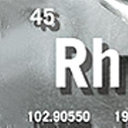Comparison of the Effects of Roasted and Boiled Red Kidney Beans (Phaseolus vulgaris L.) on Glucose/Lipid Metabolism and Intestinal Immunity in a High-Fat Diet-Induced Murine Obesity Model.
Avainsanat
Abstrakti
Consumption of the common bean (Phaseolus vulgaris L.) is associated with beneficial effects on lipid and glucose metabolism; however, the influence of the bean processing method on these health benefits is not well understood. To investigate this, we processed red kidney beans (RKBs), a variety of the common bean, by roasting and boiling and compared the physiological effects of the two preparations in male C57BL/6N mice fed a high-fat diet (HFD). The two RKB preparations differed mainly in their resistant starch content (roasted, 24.5%; boiled, 3.1%). Four groups of mice were fed for 12 weeks on a normal diet or a HFD (45 kcal% fat) supplemented with 10% control chow (HFD control group), 10% roasted RKB, or 10% freeze-dried boiled RKB. We found that intake of roasted RKBs prevented hypercholesterolemia and increased fecal IgA and mucin content compared with the HFD control group, while intake of boiled RKBs improved glucose tolerance. Both RKB preparations suppressed the HFD-associated increase in plasma aspartate aminotransferase and alanine aminotransferase levels, which are markers of liver injury. Mice fed roasted RKBs showed significantly increased hepatic expression of cholesterol 7-alpha-monooxygenase mRNA, suggesting that cholesterol suppression may be due to enhanced bile acid biosynthesis. In contrast, mice fed boiled RKBs showed significantly increased cecal content of n-butyric acid, which may be related to the improved glucose tolerance in this group. These results indicate that the method by which RKBs are processed can profoundly affect their health benefits.


